Transport, trade, and green energy: Three pillars of ECO partnership New vision unveiled in Karabakh
One of the strategic directions of Azerbaijan’s economic policy is integration with the Muslim countries of the region to jointly implement transport, industrial, and agricultural projects, as well as attract investment in green energy, tourism, and environmental initiatives.
A successful platform for bringing these joint projects to life is the Economic Cooperation Organization (ECO), which Azerbaijan joined in 1992 as a full-fledged member. The Azerbaijani state has been actively advancing this cooperation — a clear testament to which was the hosting of the 17th ECO Summit on July 4 in the city of Khankendi.
The Economic Cooperation Organization was established in 1985 by Türkiye, Iran, and Pakistan. Seven years later, it was expanded with the accession of new members — alongside Azerbaijan, five Central Asian countries (Kazakhstan, Kyrgyzstan, Tajikistan, Turkmenistan, and Uzbekistan) and Afghanistan joined the structure. Initially, ECO aimed to strengthen economic, technical, and cultural cooperation, but in recent years, the organisation has begun addressing a broader range of regional issues, including humanitarian, political, environmental, and even defence matters.
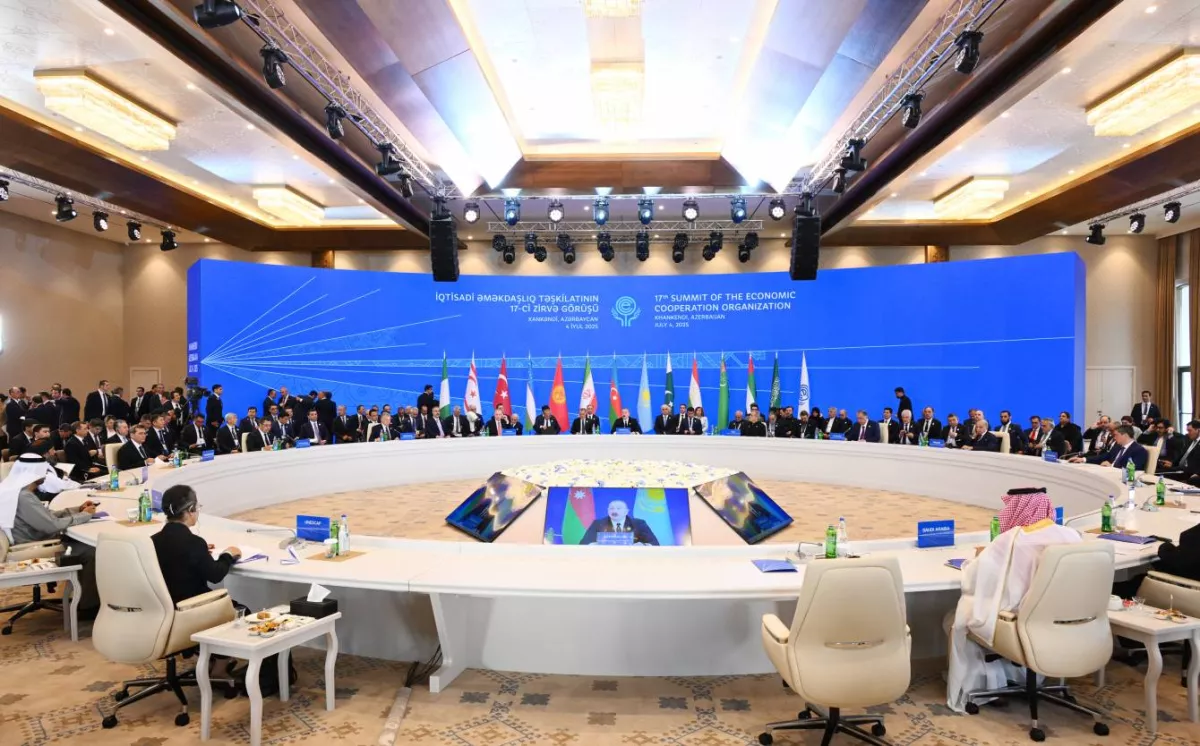
As an active member of the organisation, Azerbaijan is hosting the ECO Summit for the third time — the previous two were held in Baku in 2006 and 2012. This year, at Azerbaijan’s initiative, the country hosted the first-ever large-scale and inclusive “ECO Week,” which featured a Youth Forum, a Women’s Forum, and the 6th Business Forum.
The key event of the Week was the 17th Summit of the organisation, held under the theme “New ECO Vision for a Sustainable and Climate Resilient Future.” The summit was attended by Azerbaijani President Ilham Aliyev, the leaders of Türkiye, Iran, and the Central Asian states, the Prime Minister of Pakistan, senior officials from ECO member countries, observers from non-member states, and representatives of international organisations.
“The organization of today’s Summit in Karabakh, in Khankendi, holds particular symbolism. Several significant international events have already been held in our lands liberated from Armenia’s occupation,” said President of Azerbaijan Ilham Aliyev in his speech at the event. “I would like to mention the ECO Council of Ministers held in Shusha in 2023, the first informal Summit of the Organization of Turkic States held in 2024, and the Trilateral Summit of the leaders of Azerbaijan, Türkiye and Pakistan held in Lachin this May.”
The president also emphasised that large-scale construction and reconstruction efforts are currently underway across the entire liberated Karabakh region and East Zangezur: “Today, in the lands devastated by Armenia, new cities and villages are being built. The ‘Great Return’ program is underway. So far, we have facilitated the return of former internally displaced persons to 16 cities and villages. More than 50,000 people now live, work, and study in the liberated territories.”
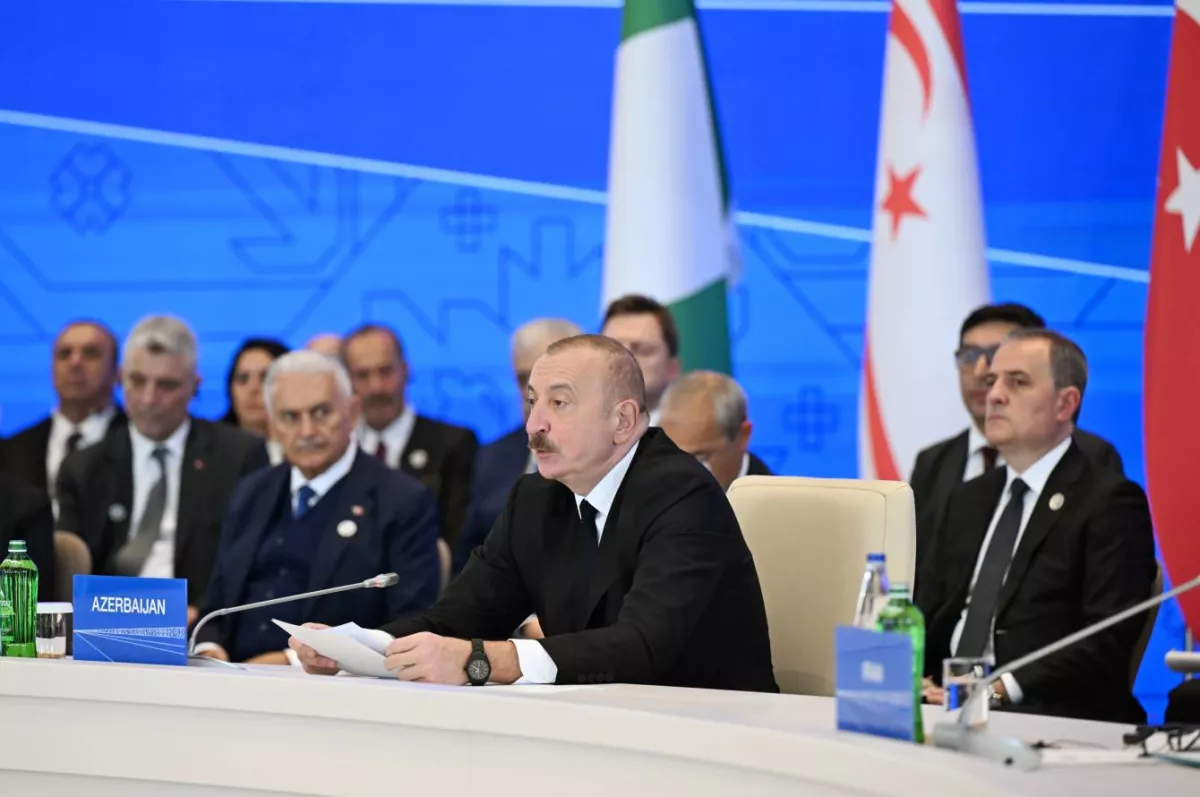
“Azerbaijan has always been actively involved in the ECO’s activity. Our relations with the ECO member states have been developing successfully,” stated President Ilham Aliyev, emphasising the importance of joint efforts to deepen business integration among ECO countries. In this regard, the efforts of ECO member states to simplify trade and freight transportation, develop energy transit, and, importantly, expand the investment dimension are of critical importance. Azerbaijan has made tangible progress in these areas, strengthening its position as a strategic hub for transport, energy, and logistics corridors within the ECO region.
“Azerbaijan enjoys a very favorable investment climate. Over the past 20 years, approximately $350 billion has been invested in Azerbaijan’s economy, with foreign investments accounting for half of that amount,” said President Ilham Aliyev. “Today, Azerbaijan ensures the energy security of several countries and exports natural gas to 12 countries through various pipelines. Based on this indicator, we hold top positions worldwide.”
The message delivered by the President of Azerbaijan on accelerating business and transport integration within the ECO framework received broad support from the summit participants.
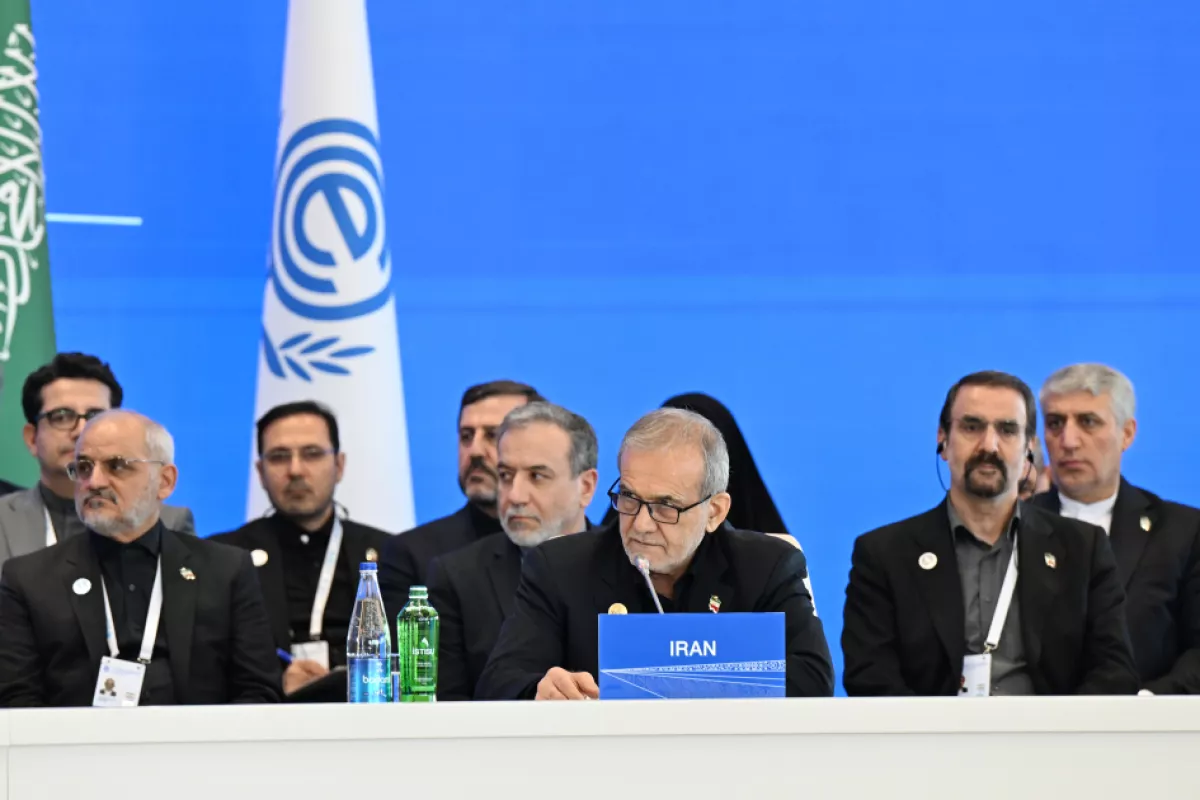
“It is necessary to strengthen transport infrastructure that connects both domestic and trans-regional routes of ECO member states. This includes the development of logistics networks, modernisation of ports and customs checkpoints, and ensuring compliance with international standards at borders and maritime terminals,” said Iranian President Masoud Pezeshkian at the summit. “Intra-regional trade within the ECO still accounts for only 8% of the total foreign trade turnover of member states. We must intensify negotiations on the establishment of a free trade zone and achieve concrete results by 2035.”
The President of the Islamic Republic also proposed the creation of a regional artificial intelligence centre under the auspices of ECO, highlighting the importance of accelerating digital transformation across the region.
The significance of accelerating the development and integration of transport and logistics networks at the regional level was also underscored in the summit speeches of leaders and senior representatives from Kazakhstan, Uzbekistan, Tajikistan, Kyrgyzstan, and Pakistan.
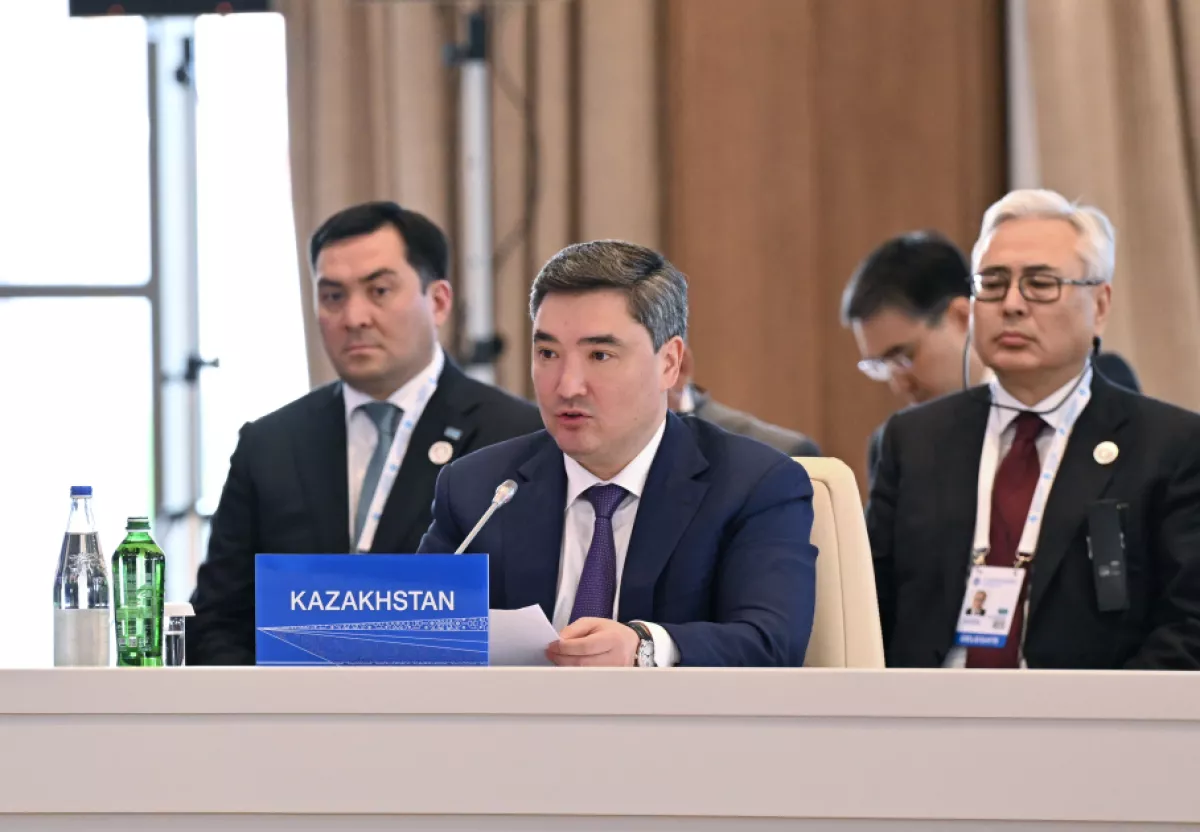
“Kazakhstan is actively developing the potential of its Caspian Sea ports. A container hub has already been launched at the Port of Aktau, and a multifunctional terminal is under construction at the Port of Kuryk,” noted Kazakh Prime Minister Olzhas Bektenov at the summit. “We are actively developing key multimodal routes — the Trans-Caspian International Transport Route, the North–South corridor, and routes via Turkmenistan. Our country also advocates for multilateral cooperation and the creation of an open economic space in the region.”
He also emphasised that the 17th ECO Summit, held under the chairmanship of friendly Azerbaijan, will give new momentum to the development of regional partnership.
For his part, President of Uzbekistan Shavkat Mirziyoyev stated at the event that recent geopolitical developments have once again demonstrated the high risk of disruptions to international logistics chains and reaffirmed the strategic importance of establishing alternative transport corridors.
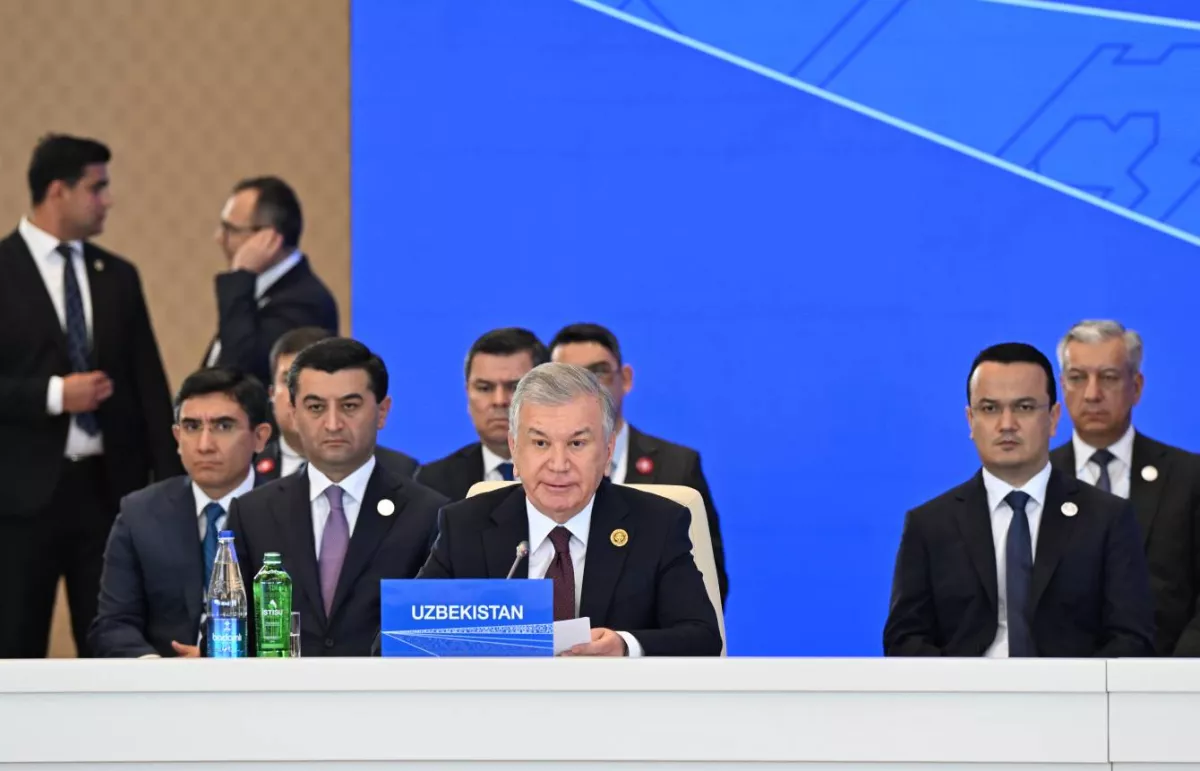
“The launch of the China – Kyrgyzstan – Uzbekistan railway project last year was a significant event. In the future, this railway will be connected with the Trans-Afghan corridor, effectively integrating transit networks across our vast region,” said the President of Uzbekistan.
During the summit, particular attention was given to the specific needs of landlocked countries — Uzbekistan, Kyrgyzstan, Tajikistan, and Afghanistan — in diversifying overland corridors, simplifying cross-border procedures, and reducing tariff and non-tariff barriers to facilitate freight transportation and trade.
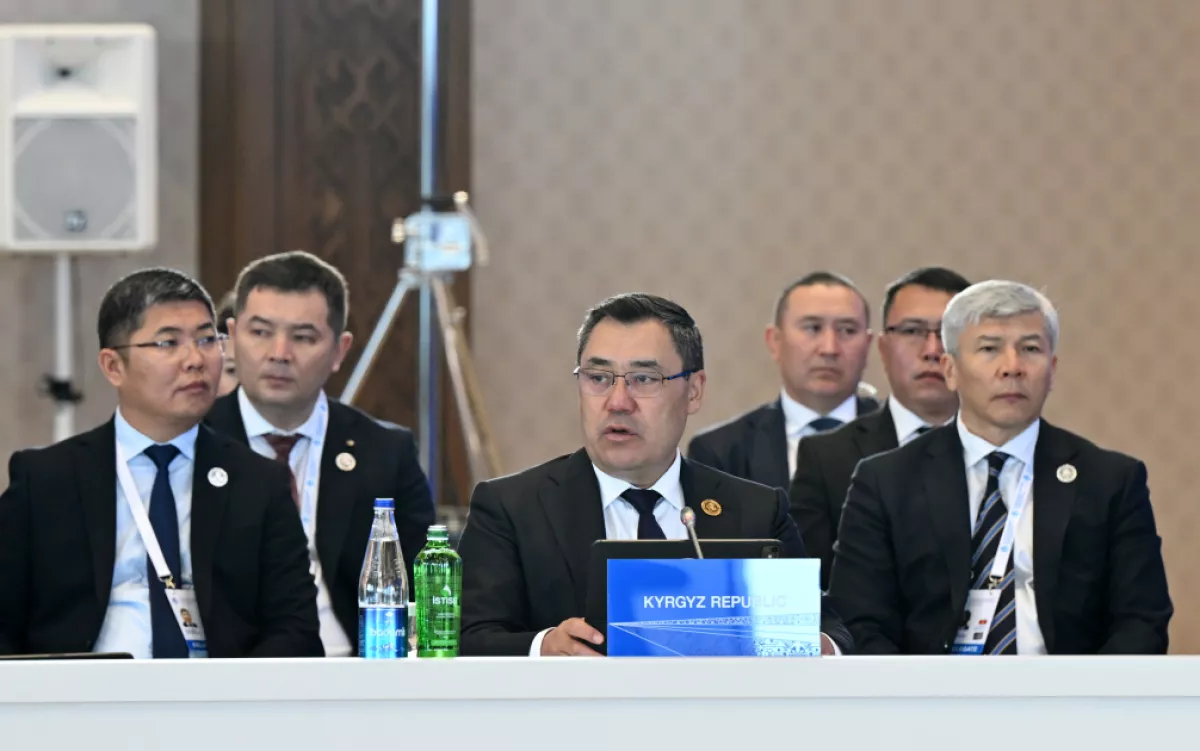
“As part of the ECO framework, we consider it reasonable to create preferential access conditions to port infrastructure for landlocked countries. In particular, this could involve introducing preferential tariffs for cargo reception, unloading, and storage services at seaports,” said President of Kyrgyzstan Sadyr Japarov.
According to him, it is also necessary to promote the active digitalisation of cargo transportation processes — including rail and road logistics — as this is seen as one of the key areas of cooperation among ECO countries.
Dushanbe likewise voiced strong support for removing trade barriers, streamlining transit procedures, and enhancing transport connectivity with the aim of establishing international logistics corridors under the ECO umbrella. President of Tajikistan Emomali Rahmon expressed interest in creating a regional energy market and developing a strategy for the region’s energy resilience.
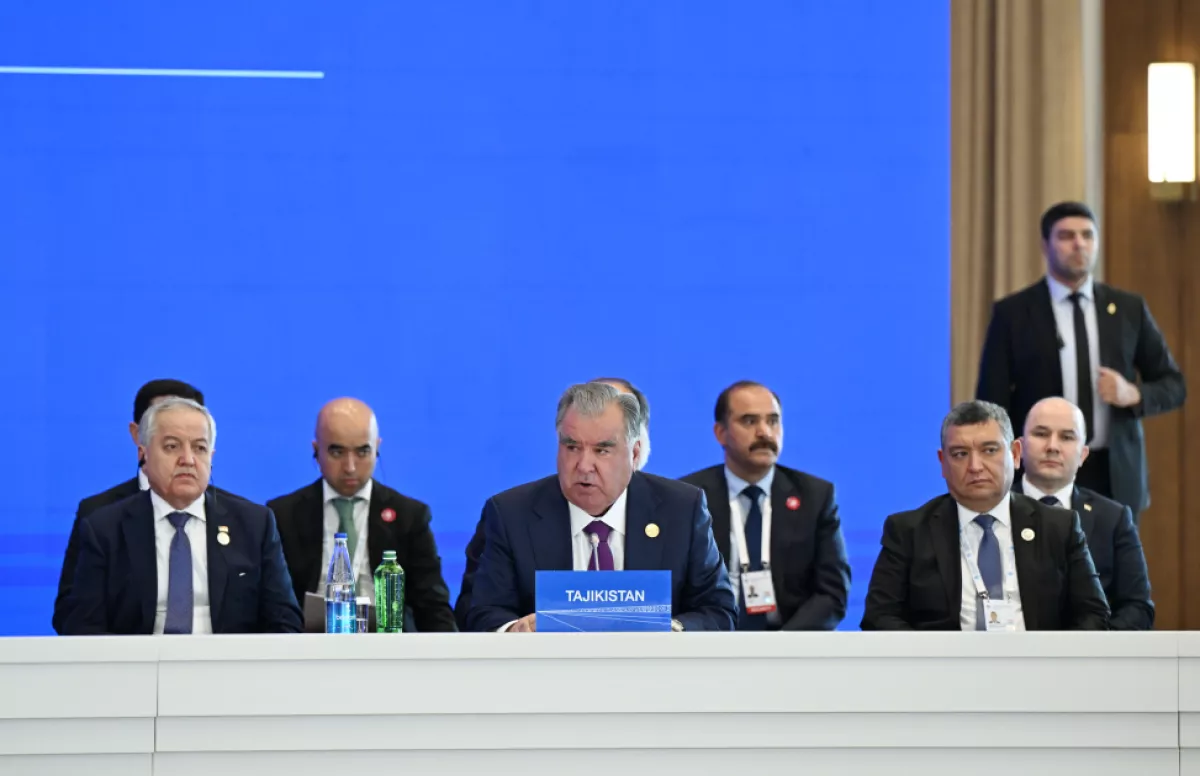
“Of particular importance for the states of the region is the implementation of the CASA-1000 power transmission line project: a recent milestone was reached with the commissioning of the 500 kV Datka–Sughd power line between Kyrgyzstan and Tajikistan,” emphasised Emomali Rahmon.
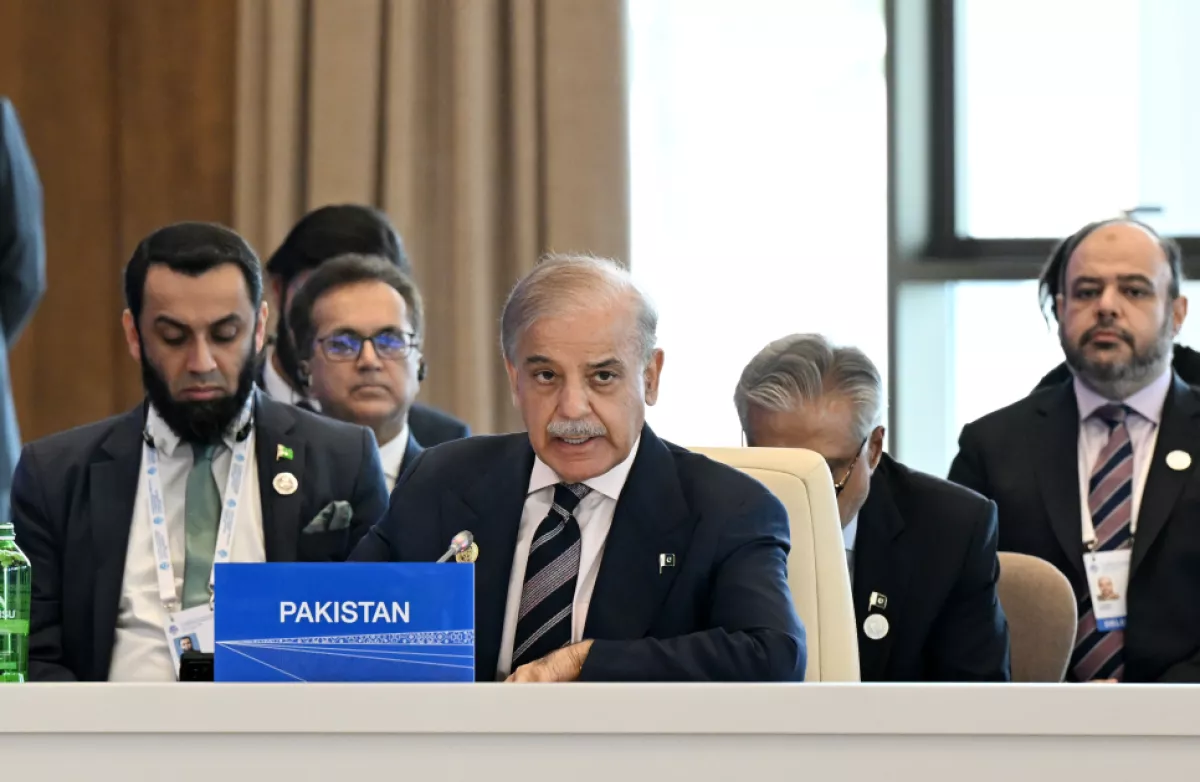
Along similar lines, Pakistan’s Prime Minister Shehbaz Sharif proposed developing low-carbon corridors within the ECO framework. Regional clean energy corridors and ecotourism initiatives could further stimulate inclusive and sustainable growth while helping to create “green” jobs.
In summarising the summit, President Ilham Aliyev expressed confidence that the ideas and proposals put forward would be consolidated by the ECO Secretariat and reflected in the organisation’s future activities, including the preparation of a development document for 2026–2035.
Among the key outcomes of the meeting in Khankendi was the announcement of the city of Shusha as the ECO Tourism Capital for 2026. It is also worth noting that work continues in Azerbaijan to launch the ECO Research Centre and the ECO Clean Energy Centre as soon as possible.
The Economic Cooperation Organization Summit in Khankendi marked an important milestone in deepening integration and political cooperation and further confirmed Azerbaijan’s growing role as a strategic hub for transport, logistics, and energy links among the region’s countries.








